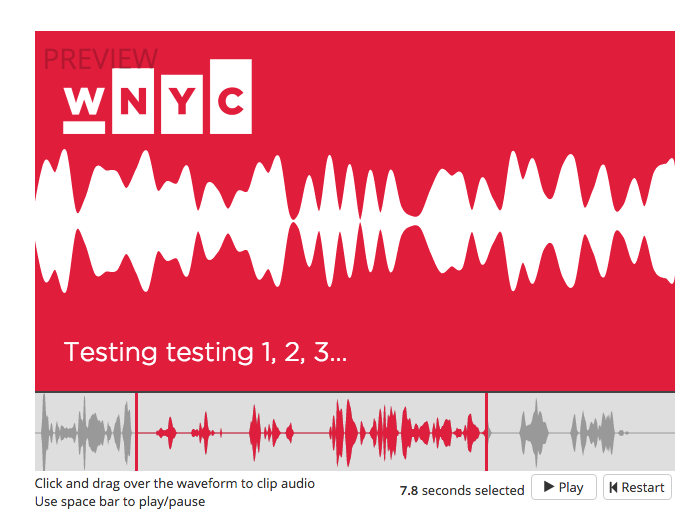
Twitter Exclusive: @msjwilly & @dopequeenpheebs dive into the studio to talk about Taylor/Kanye drama.https://t.co/D6Rn10BS2Y
— 2DopeQueens Podcast (@2DopeQueens) July 20, 2016
And here are several sound bites of people reacting to the shooting at the Pulse nightclub in Orlando, in one tweet:
The station’s director of social media Delaney Simmons wrote in a Medium post that WNYC has been able to the use the tool to great effect, and that the station is teaming up with other people in the audio industry to test the generator (NPR One, for instance, which has been testing their own social-native audio with accompanying animations):"I am scared, sad, furious, confused." #Orlandohttps://t.co/J6KXuxRsUL
— WNYC (@WNYC) June 13, 2016
WNYC has experimented with social audio in other ways as well. Earlier this year it partnered with Anchor, a mobile app that lets users post and reply to others with short audio clips.WNYC shows have been seeing great results. On Twitter, the average engagement for an audiogram is 8x higher than a non-audiogram tweet and on Facebook some of our shows are seeing audiogram reach outperform photos and links by 58% and 83% respectively.
We know there’s still a lot of work to do in the social audio world. Conversations with social platform execs about the work we’re doing are ongoing, and we encourage everyone to have those conversations with their reps as well. WNYC is in communications with a number of other audio companies that are excited to test this product, including NPR.
A similar social audio app, RollTape was working with BuzzFeed’s Another Round podcast, but the app shut down in June.
I missed this: Rolltape, a social audio app that was partnering with @anotherround shut down last month pic.twitter.com/ZIjJ5FYmuT
— Joseph Lichterman (@ylichterman) July 8, 2016
2 comments:
BTW, this is hosted for free at audiogram.sparemin.com!
Precisely what I was looking for, appreciate it for posting.
Trackbacks:
Leave a comment